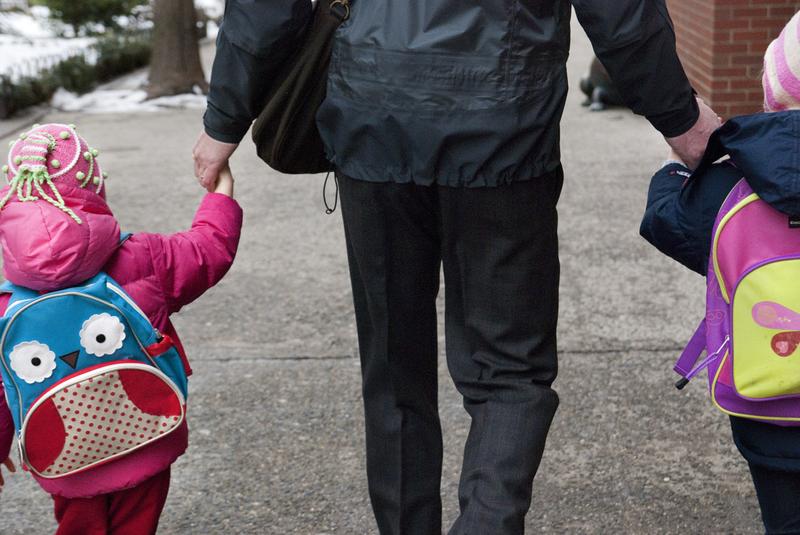
Mayor Bill de Blasio’s promise of universal high-quality preschool will fail.
It doesn’t matter if he or Gov. Andrew Cuomo wins the ongoing funding battle. Even if you take at face value the dubious arguments presented about existing program quality and a supply of highly qualified teachers, it will fail. And the reason is simple.
Consider this: you are a recent graduate in early childhood education and candidate for two teaching jobs in New York City. The expectations are identical and the titles are the same. In option one you have a week off at Christmas, a week in February, a week in April, and two months in summer. It offers fantastic insurance and a great pension. In option two you have four weeks paid vacation to take throughout the year, but your school rarely closes. The insurance and pension the sit squarely in the mediocre category.
Additionally, if you take the job at option two you will likely be working a longer day, with fewer programmatic supports such as social workers and nurses. Oh, and also, in option two the maximum salary that you can make, even if you teach for 30 years, is lower than your starting salary at the first option.
This is exactly the situation that the city’s preschool teacher candidates are in. The first option is working for a universal pre-k located at a public school. These jobs are highly sought after and turnover is low. This is not where most of the proposed pre-k expansion will take place, as most public schools do not have space for more pre-k classrooms.
The second option is working for a pre-k located at a community based organization, or CBO. While the rhetoric coming from the mayor’s office surrounding pre-k expansion presents CBO classes as almost extensions of the Department of Education, the reality is far from the truth.
Most CBOs are childcare centers. They operate with a mixed funding model, which means that they receive money to operate during the school year, but are geared to serve parents who work, so they use other money (from ACS, Head Start, or tuition) to remain open during other times and often later hours. They are, for the most part, far smaller than public schools. A CBO has fewer employees to absorb the cost of a director, front desk staff, or a cook. And, most importantly, they, unlike public schools, pay rent. Allocating the same amount of money to pre-k programs operated at CBOs and public schools gives the CBOs less to work with for their programs. This leads to lower salaries for teachers working at CBOs.
Comparisons between New York’s pre-k program and New Jersey’s show a $24,000 salary gap between the two localities. A recent article in the New York Times accredited this primarily to differing credential requirements, because teachers may start working at CBOs before they are fully licensed.
That is misleading.
The pay differential is all about the union. Teachers at CBOs are not members of United Federation of Teachers. The CBO’s collective bargaining agreements are substantially lower than UFT’s. A fully licensed teacher at a Head Start CBO with a masters degree will top out, according to the collective bargaining agreement, at $48,509. At a day care it’s even lower, around $41,000. Regardless of the extra training or years that she works, that’s it; there are no more steps up a pay scale.
In comparison, a fully licensed teacher at the D.O.E. with a masters degree will start work her first year making $51,425. If she stays in the system and gets additional credentials, by the time she retires she could make over $100,000.
Unsurprisingly, staffing is a huge challenge at CBOs. Assistant teachers, who typically have less training, stay around; head teachers turn over. The director is always training someone, always breaking in a head teacher who has limited teaching experience, always helping someone through the universally rocky first year only to send the teacher off in a year or so to a public school or out of education altogether due to burnout.
As it is, pre-k quality is not great and at many CBOs it’s sometimes shockingly bad. This is not entirely due to teacher salary, of course, but the low pay certainly compounds the issue.
This doesn’t mean that a CBO cannot run a high-quality center; I am the education director of an excellent preschool in lower Manhattan, and there are other programs, DOE and CBO alike, which are exciting and enriching places for young children. But these places are the exception, not the rule. I know stories that would turn most parents’ stomachs about things that take place at UPK programs—of movies watched regularly during the school day, of teachers who spend much of the day texting while children play, and of teachers left alone in classrooms to tend to 20 children for hours.
Forget about high quality pedagogy—when basic staffing and professionalism questions aren’t addressed you can rest assured there will be little more than lip service paid to best practice and school readiness.
Pouring money into early childhood education is a worthwhile cause. But these new pre-k sites will not be replicas of the highly-lauded Perry Preschool Project or even similar to the New Jersey Abbott districts. This will be childcare. Some CBOs may be able to do it brilliantly, most will not.
Childcare, even middling quality childcare, has its place; working families desperately need somewhere safe and affordable to put their young children during the day. But if that’s what it will be, let’s stop pretending that we’re expanding high-quality anything.
